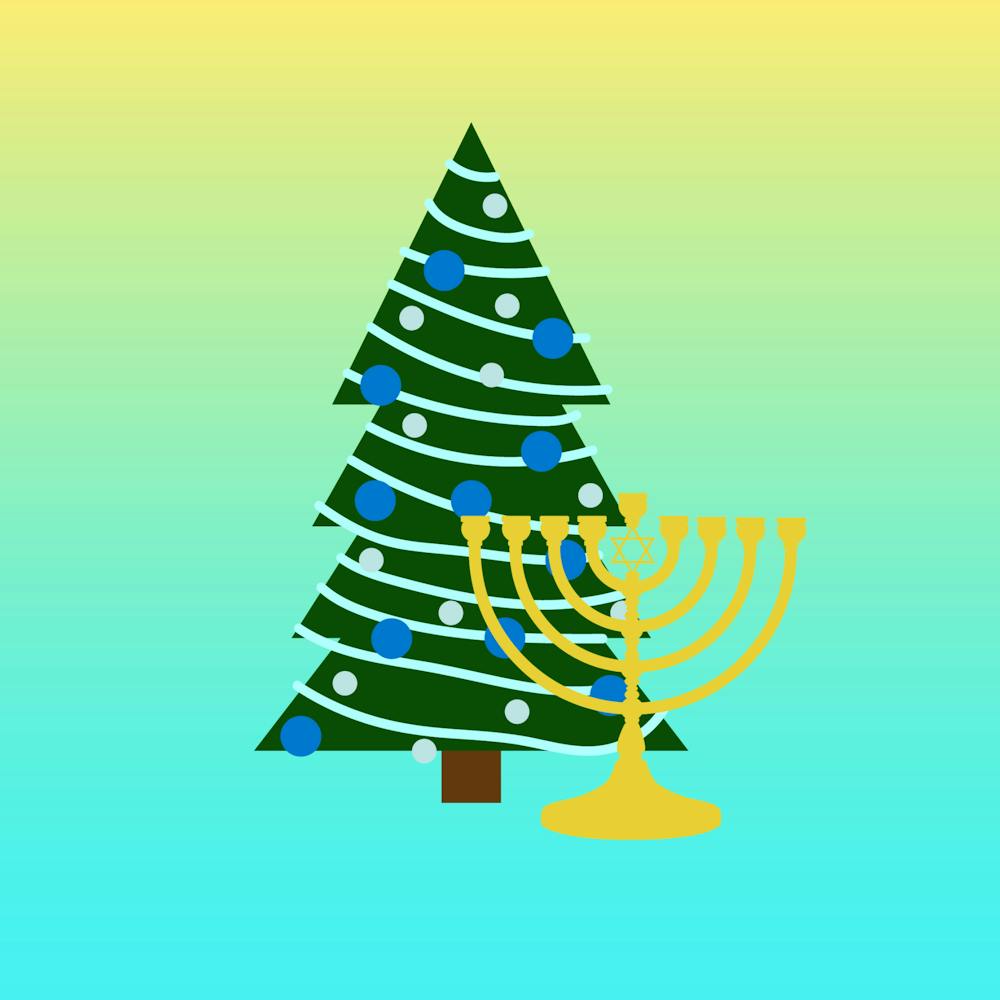As December approaches, the holiday season dawns upon us, and many families prepare for massive feasts, yearly reunions and gift shopping.
When we drive down our streets, we see houses lined with sparkling Christmas lights, pine trees and statues of old Saint Nick. But what about the people who don’t celebrate Christmas?
It is important to remember that America is a melting pot of different cultures and traditions, and while they’re often forgotten, holidays such as Hanukkah and Kwanzaa are still celebrated by many Americans.
Also, for many people, Christmas is an emotionally taxing time of year that could be characterized by single-parent households, estranged relatives, divorced parents and many more “non-traditional” family dynamics.
When living in a diverse country and community, it’s important to understand that Christmas is not the all-encompassing event of the holiday season.
As an American belonging to a Russian-Jewish heritage, I participate in many traditions other than Christmas. For example, every December, my family and I celebrate Hanukkah.
Hanukkah is a celebration lasting eight days in early to mid-December characterized by lighting a menorah, eating traditional foods and listening to traditional Jewish music. For me, Hanukkah consists of getting together with my community, lighting the menorah and eating donuts, latkes and drinking hot chocolate.
Contrary to popular belief, many Jewish families, including mine, actually do celebrate Christmas in their own traditional ways.
In fact, it’s very common for Jewish-Americans to gather together on Christmas Eve to drive around and admire houses with extravagant lights and decorations and then come together to eat at a Chinese restaurant.
Another interesting tradition shared by mine and other Russian families is the Russian New Year. Many Russian Americans celebrate the New Year with grand meals composed of cultural Russian food and gift-giving.
Many don’t understand the significance of celebrating the New Year because most people view it as more of a party than a traditional holiday. But for me, it has been the one day a year when I get to see my extended family and receive the gifts I’ve been wanting for months.
However, in my experiences with Christmas, it’s always been an alienating time — seeing all my friends reconnect with their families and distant relatives and receive an exuberant amount of presents from Santa.
Enjoy what you're reading?
Signup for our newsletter
For a long time, I wished that I could celebrate Christmas. Only recently it dawned on me that I do celebrate the holiday, just in my own way which, in many ways, still makes me feel left out when I notice my friends talking about the Elf on the Shelf or leaving cookies out for Santa.
Even for those celebrating Christmas, it can be tougher for some than others. Many children of divorced families must split up their time between their two parents: two parties, two sets of gifts and double the driving.
Also, factors such as losing a loved one can make Christmas even more difficult. It’s hard to celebrate such a family-orientated holiday knowing that a loved one is no longer with you, and you can no longer enjoy something you both shared.
Christmas is not always the easy-going, light-hearted holiday it’s cut out to be, especially when it comes to difficult family dynamics and deceased loved ones. This joyous holiday loses its Christmas joy and spark and can become an event that some would rather avoid. Yet still, this time of year can still be one of great celebration and joy.
So, whether you celebrate Christmas, Hanukkah, Kwanzaa or nothing at all, this holiday season is the perfect time to get together with friends, family and loved ones. This time is about cherishing the people in your life no matter which holiday you celebrate.
Sasha Kapinos is a first-year psychology major with a minor in Spanish from Cleveland, Ohio. She is a contributor to the opinion section of The Student.




